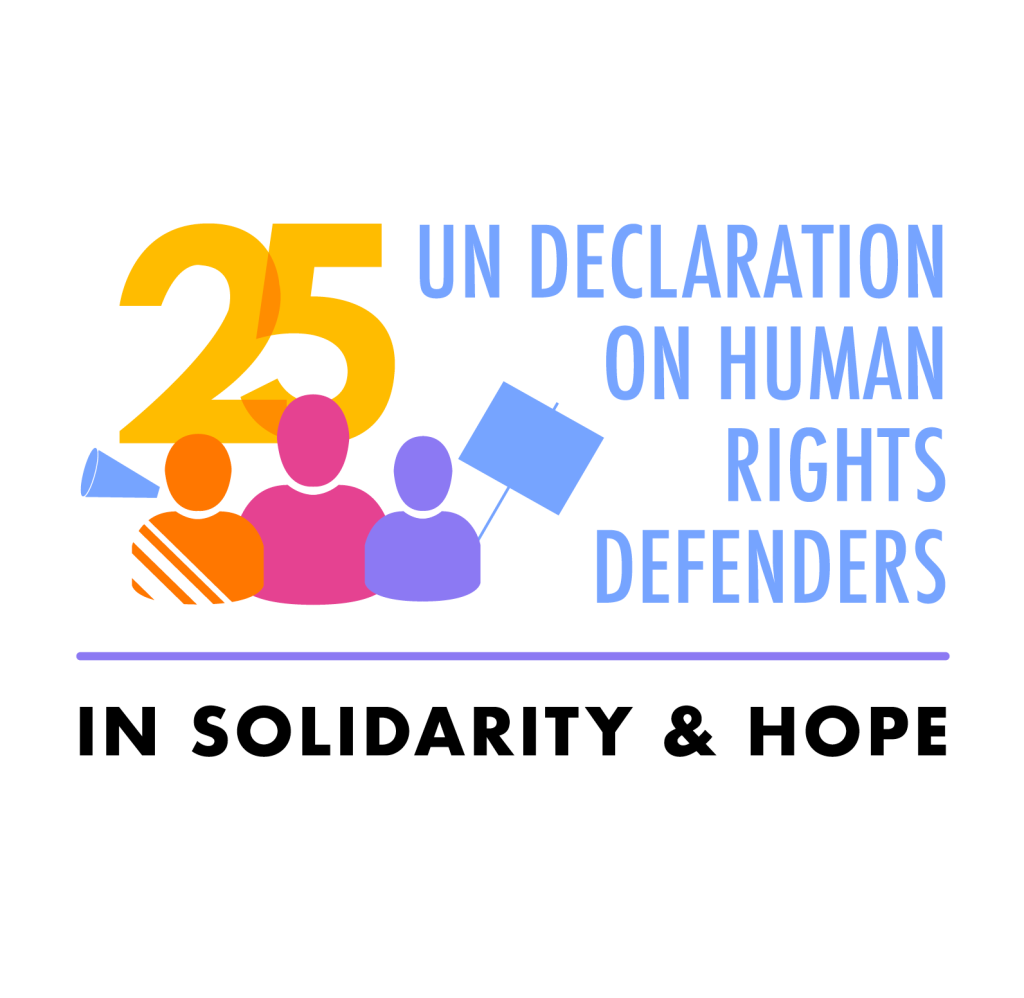The rights of human rights defenders, and the protection owed to them by governments and businesses, are detailed in a specific UN declaration called the Declaration on the Right and Responsibility of Individuals, Groups and Organs of Society to Promote and Protect Universally Recognized Human Rights and Fundamental Freedoms.
The Declaration emphasises that everyone has rights and freedoms, but also responsibilities – that we can all help promote human rights, safeguard democracy and its institutions and, of course, make sure we don’t violate each other’s human rights.
The Declaration makes special reference to the responsibilities of people whose jobs can affect the human rights of others. For example, police officers, lawyers, judges, etc.
And vitaly, it outlines the responsibilities and duties that governments have to respect and protect people who defend human rights.
Overview of the Declaration on Human Rights Defenders
The Declaration provide specific protections to human rights defenders, including the rights:
- To seek the protection and realisation of human rights at the national and international levels;
- To conduct human rights work individually and in association with others;
- To form associations and non-governmental organizations;
- To meet or assemble peacefully;
- To seek, obtain, receive and hold information relating to human rights;
- To develop and discuss new human rights ideas and principles and to advocate their acceptance;
- To submit to governmental bodies and agencies and organisations concerned with public affairs criticism and proposals for improving their functioning and to draw attention to any aspect of their work that may impede the realisation of human rights;
- To make complaints about official policies and acts relating to human rights and to have such complaints reviewed;
- To offer and provide professionally qualified legal assistance or other advice and assistance in defence of human rights;
- To attend public hearings, proceedings and trials in order to assess their compliance with national law and international human rights obligations;
- To unhindered access to and communication with non-governmental and intergovernmental organisations;
- To benefit from an effective remedy;
- To the lawful exercise of the occupation or profession of human rights defender;
- To effective protection under national law in reacting against or opposing, through peaceful means, acts or omissions attributable to the State that result in violations of human rights;
- To solicit, receive and utilise resources for the purpose of protecting human rights (including the receipt of funds from abroad).
All governments have a responsibility to implement and respect all the provisions of the Declaration. These include their responsibility and duties:
- To protect, promote and implement all human rights;
- To ensure that all persons under its jurisdiction are able to enjoy all social, economic, political and other rights and freedoms in practice;
- To adopt such legislative, administrative and other steps as may be necessary to ensure effective implementation of rights and freedoms;
- To provide an effective remedy for persons who claim to have been victims of a human rights violation;
- To conduct prompt and impartial investigations of alleged violations of human rights;
- To take all necessary measures to ensure the protection of everyone against any violence, threats, retaliation, adverse discrimination, pressure or any other arbitrary action as a consequence of his or her legitimate exercise of the rights referred to in the Declaration;
- To promote public understanding of civil, political, economic, social and cultural rights;
- To ensure and support the creation and development of independent national institutions for the promotion and protection of human rights, such as ombudsmen or human rights commissions;
- To promote and facilitate the teaching of human rights at all levels of formal education and professional training.
You can access the UN’s Declaration on Human Rights Defenders here.


